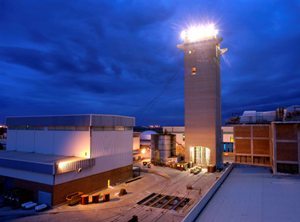
ANGLOGOLD Ashanti is to start a Section 189 restructuring process at its Tau Tona and Kopanang mines potentially affecting 8,500 miners following prolonged unsustainable losses at the mines.
“I can confirm we have entered into a 189 process potentially affecting 8,500 people principally around Kopanang, which is 40 years old, and the Tau Tona mine which is 60 years old,” said Stewart Bailey, senior vice president of investor relations at the gold producer. The company employs some 28,000 people, including contractors, at its South African mines.
“Both operations have sustained heavy losses over the last three years,” he said. The restructuring would see AngloGold cut some 250,000 loss-making ounces per year. Some 1.5 million oz in reserves would be affected.
Subject to the Section 189 consultation process, Kopanang – which is in AngloGold’s Vaal River region – would be put on care and maintenance along with the Savuka section of Tau Tona in AngloGold’s West Wits region. It would evaluate the feasibility of integrating elements of TauTona mine into the neighbouring Mponeng mine.
“This is not a knee-jerk reaction,” said Bailey. “The mines have been making losses for some time, but we have to make sure the rump of the business stays sustainable,” he added.
In the first quarter of its 2017 financial year, the Kopanang mine incurred all-in sustaining costs of $2,500/oz while Tau Tona’s AISC was $1,700/oz against an average gold price of $1,216/oz.
AngloGold said it would continue to invest in viable gold resources in South Africa. It is thought, for instance, that it could invest as much as $1bn over a period of time in a drop down below 120 level at its Mponeng mine.
“This is not a reaction to the Mining Charter,” said Bailey. “These mines have just reached the end and the resource is not endlessly renewable. We have mined to the boundary every which way; they are just not viable,” he said.
Employees at the two mines are mostly represented by the National Union of Mineworkers but unions the Association of Mineworkers & Construction Union and UASA as well as Solidarity are also well represented at the mines.
“This is a difficult decision which follows a period of significant and – ultimately – unsustainable losses,” said Srinivasan Venkatakrishnan, AngloGold CEO in a statement to the Johannesburg Stock Exchange. “It is critical that we act to protect the long-term sustainability of this business and the majority of our workforce.
“We are mindful of the sensitivity that this situation demands, and are committed to supporting all our employees throughout this process,” he added.
In 2015, the company put its Obuasi mine in Ghana on care and maintenance after years trying to improve efficiencies at the historic operation.










